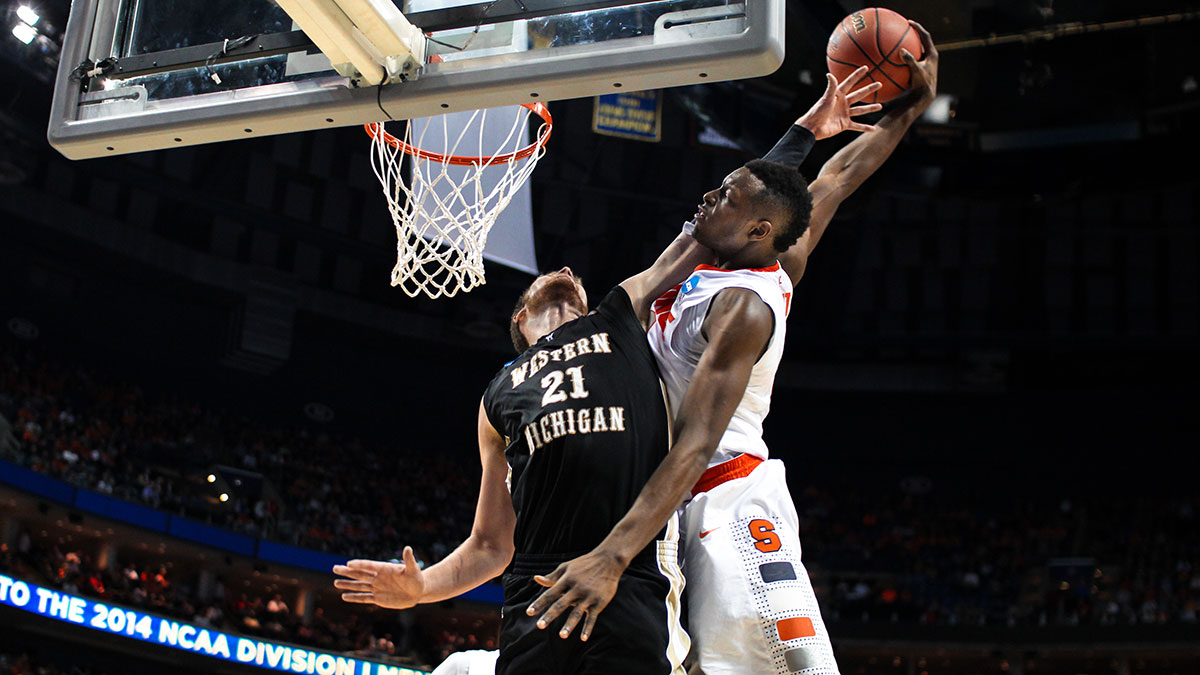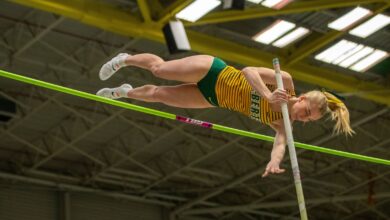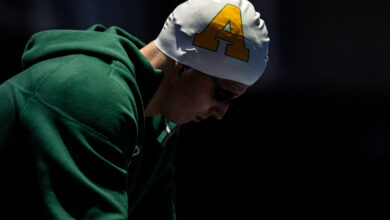Point-Counterpoint: Should colleges start paying NCAA athletes
 Supplied
SuppliedPoint: Paying athletes takes away from the spirit of amateurism
It’s March, which means we’re right in the middle of one of the highest profile amateur sporting events in the world, aside from the Olympics.
Yes, it’s NCAA tournament season, and before we go any further, I think college athletes should be compensated for the work they put in. The amount of money the NCAA makes off the tournament in advertising revenue is borderline exploitative. Advertising is so ingrained in the tournament that there’s even an official ladder for when athletes cut down the nets during the Final Four.
However, if you start paying athletes, the tournament immediately loses a large part of what makes it special.
It’s all about the difference between amateur and professional athletics. If you start paying players, no matter how small of a sum, you start implying they’re athletes first and students second. Even if that’s sometimes already the case when students aren’t getting paid, you open up the discussion for people.
Despite the fact that players are in a system that preaches professional athletic values in an amateur athletic system, the tournament retains a large portion of its mystique because it’s still technically filled by amateur athletes.
With pro sports, players always seem to have a sense of the big stage. Even if a player has never played in the playoffs, they’re still used to playing in front of a national audience. They’re used to being scrutinized and having their games picked apart by analysts. Essentially, they’re used to doing it for a living.
Many college teams in the tournament aren’t used to the big stage. It’s pretty easy to catch a regular season game between the Philadelphia 76’ers and Milwaukee Bucks, but it’s much more difficult to catch a regular season Patriot League game between Lehigh and Holy Cross. That’s why upsets are so special. Players from those smaller schools aren’t used to national scrutiny, and when they can play above themselves and knock off a higher seeded team, it feels more genuine than an upset in a professional league. They’re just students, they’re not getting paid to play, and here they are, performing a fantastic feat on the national stage.
That brings us back to the concept of paying these athletes, these beacons of hope for the amateur sporting world. The problem with paying athletes has nothing to do with the athletes themselves, but the public’s perception of them. When the money starts going into the players’ pockets, their mystique will leave in equal measure. Suddenly, they won’t be champions of the amateur field, they’ll just be more professional athletes, who get paid to play, and aren’t worried about anything else.
We’ll lose that sense of magic that the tournament brings. The magic of amateurs rising above themselves to perform spectacular feats in front of a national audience. Suddenly, players will just become paid shills for the professional sporting machine. In essence, the tournament, and the players, will lose a large portion of their glory if players start getting paid.
The difficult thing is that the players deserve to be compensated, but if they start getting paid, their public image could take a huge hit, and I for one would hate to see that happen. — Zach Borutski
Counterpoint: Pay up: NCAA athletes making money is fair compensation
I really don’t think that people watch college sports because of the fact the players aren’t paid. To be honest, whether the player is officially amateur, meaning unpaid, or not isn’t what makes college sports, and specifically, the March Madness Tournament, as exciting as it is.
The American college sports scene is deeply rooted in a sense of tradition around an individual’s pride with their alma mater. This pride is passed on from generation to generation, as the passion many Americans have for the team that represented them back in their goal ol’ college days in many cases far surpasses the love they have for their local NFL and NBA franchises.
That’s because there’s a sense of connection with the team. You ate lunch at the same cafeteria, lived in the same dorm rooms, walked down the same halls, and studied in the same libraries (well, not that, because, you know, practice) as those kids playing their hearts out to represent their schools.
Unfortunately, since today’s NCAA athletes are entrenched in the tradition around American varsity sports and college life, they’re also trapped in the old fashioned, puritan, bourgeoisie ideal of amateurism. This idea dates back hundreds of years to a time in which it was considered unethical for an athlete to collect money for their participation in sport. Whether it was representing their country and the Olympics, or their school in any sport, they were there for the logo on their shirt, not the cash that may have been offered to them under the table.
So here we are now, in the 21st century, and we’re still grasping on to an idea that’s completely outdated and irrelevant in the realm of modern economics. The NCAA is a massive, billion dollar industry, and the players are no more than unpaid interns who aren’t adequately compensated for their work.
According to Forbes, the average Division I NCAA athlete dedicates roughly 43 hours of time per week to their sport, which is comparable to that of a typical work week. Of course, the argument is that they’re given scholarships in compensation, but as anybody who’s attended university in the past decade knows, the expenses of the average student extend well past tuition and board.
Besides, if this really was all about amateurism and the love of the game, coaches and athletic directors wouldn’t be raking in millions of dollars per year thanks to lucrative television and sponsorship deals. That money would be reinvested back in the schools. But instead, in 40 states in the U.S., a college football or basketball coach is the highest paid public government official.
It’s hard to imagine an industry in which individuals who generate so much hype and bring in so much money are compensated as poorly as college athletes. The argument of amateurism is meaningless and outdated, and simply can’t be applied in a climate in which the organization is raking in over $11 billion.
Give the kids some cash. They deserve to be compensated for their work, and scholarships simply don’t cut it, especially when these athlete-students are expected to miss much needed class and study time to market their schools and bring in copious amounts of ad money on live television. — Cameron Lewis




